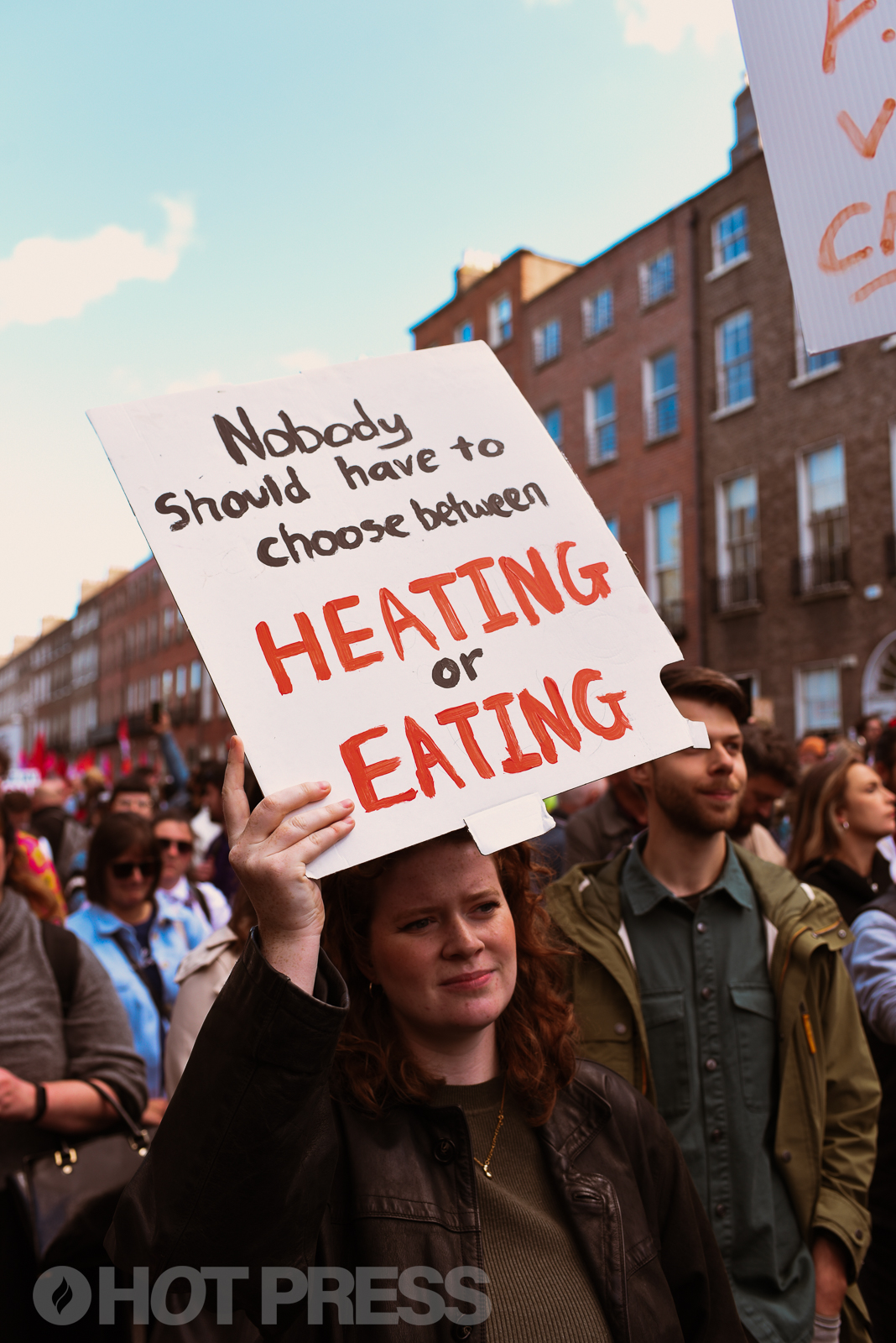- Culture
- 15 Mar 23
Friends of the Earth: Irish families are choosing between food or heating

"People presented with ‘now-impossible’ bills and spoke of cutting out food so as to pay for fuel,” the report said.
A new report conducted by environmental organisation Friends of the Earth finds government policy lacking, leaving many Irish households "out in the cold."
The report, based on input from 32 experts across housing, poverty, climate, and energy, asserts that many Irish families are now having to choose between buying food and heating their homes. “Energy spending displaced food spending as the top household outgoing, forcing a choice of heat or eat," the report found.
This past year, the number of Irish families unable to heat their homes has near doubled due to inadequate incomes, the energy crisis, and inefficient housing. Cohorts of people–many of whom are in the private rental sector–find themselves in energy poverty as the Government bystands, the report details.
Govt’s new climate & energy poverty plans failing to combat the energy price crisis & household reliance on fossil fuel
If Govt wants to meet climate targets, it must change tact & do it in a way that protects those in energy poverty
Our press release👇https://t.co/OxwRevoC2s— Friends of the Earth (@foeireland) March 15, 2023
Experts find the current system "functionally perverse," accounting that utility companies have the ability to raise bills at will, so even if a household cuts back on usage, their bill could feasibly be even higher. This is at the same moment that the Government seeks to retrofit 500,000 homes, as part of a broader plan to half carbon emissions by 2030, a plan which many families cannot afford.
“This research shows that if the Government is serious about meeting their climate targets, they will need to change their current approach and do it in a way that protects and prioritises households that are most in-need first," said Clare O’Connor, the Energy Policy Officer at Friends of the Earth.
"Families who can’t afford to pay their energy bills aren’t in a position to invest in expensive retrofitting measures."
 Cost of Living protest in Dublin. 24th September 2022. Copyright Miguel Ruiz.
Cost of Living protest in Dublin. 24th September 2022. Copyright Miguel Ruiz.Friends of the Earth urge the Government to come up with more feasible ways for low-income people to retrofit, a process which typically costs €23,000. Jerry Mac Evilly, the Head of Policy at Friends of the Earth is hopeful that the Government can adopt change in response to the climate crisis in a "manner that respects Sustainable Development Goal pledges to ensure “no one will be left behind” and to “reach the furthest behind first”."
With with waiting lists of up to 3 years for the SEAI’s free energy upgrade scheme, as well as a major labour and skills shortages, much has to be done for these goals to be attainable.
The organisation concluded their findings with a list of 49 recommendations for the Government, based on fieldwork, research and analysis.
These include:
- "The Government should introduce an Energy Poverty Act that defines energy poverty, sets legally-binding targets for reducing energy poverty, and sets up an independent energy poverty advisory council."
- "Regulations for rental properties should be introduced to force landlords to ensure a minimum energy performance standard. This regulation should start with multi-property landlords in 2023."
- "The Government should prioritise increasing eligibility for the SEAI free retrofitting scheme, zero interest or low cost loan or other models of financing retrofits, as well as community energy advisors, street-by-street insulation programmes and district heating systems."
- "The Government should consider redesigning the Fuel Allowance to include households who really need it, for example a new year-round payment with eligibility based on household income, as well as on the Building Energy Rating."
- "A much more ambitious target should be set for the retrofitting of social housing, setting a minimum standard of B2 to be achieved in all social housing by 2030 and increasing investment in the Department of Housing’s social housing retrofit scheme."
RELATED

- Culture
- 30 Sep 22
Irish homelessness figures hit record high of 10,805

- Culture
- 28 Dec 25








